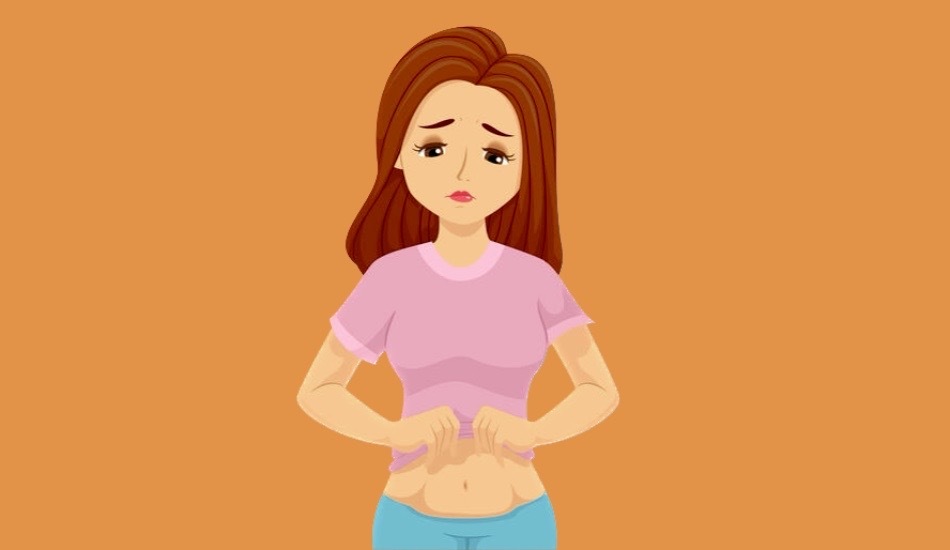Feeling Bloated? Spot The Signs And Crush That Bloating Like A Boss!
No More Swollen Feeling!
Bloating is an all-too-familiar sensation that plagues countless individuals, leaving them with a sense of discomfort and a swollen, uneasy feeling. Its impact reaches beyond the physical realm, as it can significantly impact one’s confidence and overall well-being. So here are the intricacies of bloating, shedding light on five key indicators that suggest its presence, while equipping you with practical strategies to alleviate this distressing condition.

1. Abdominal Discomfort
One of the most prominent signs of bloating is abdominal discomfort. You may feel a sense of fullness, tightness, or heaviness in your stomach area. This discomfort is often accompanied by a visibly distended belly. To reduce abdominal bloating, try incorporating gentle exercises like walking or yoga into your routine. Additionally, consuming smaller, more frequent meals can help alleviate the discomfort.
Also Read: Go From Basic To Boujee With These 5 Superfoods, Including Moringa And Ashwagandha
2. Excessive Gas
If you find yourself passing gas more frequently than usual, it could be a sign of bloating. Excessive gas can lead to discomfort and an uncomfortable feeling of pressure in the abdomen. To reduce gas and bloating, consider avoiding gas-producing foods like beans, lentils, cabbage, and carbonated drinks. Incorporating peppermint or ginger tea into your diet may also help alleviate gas and promote digestion.
3. Feeling Of Being Stuffed
Do you often feel like you’ve eaten more than you should, even if your portion sizes were normal? This feeling of being stuffed is another sign of bloating. To combat this, practice mindful eating. Slow down your eating pace, chew your food thoroughly, and listen to your body’s signals of satiety. Eating smaller, balanced meals and avoiding overeating can prevent that uncomfortable stuffed sensation.
4. Constipation
Bloating and constipation often go hand in hand. If you experience infrequent bowel movements, hard stools, or a feeling of incomplete elimination, it may contribute to bloating. Increasing fibre intake by incorporating fruits, vegetables, whole grains, and legumes into your diet can help relieve constipation and reduce bloating. Staying hydrated and being physically active can also aid in maintaining regular bowel movements.
Also Read: Bad Sleep Schedule? Doing These 8 Things Before Bed Might Get Your Sleep And Life On Track!
5. Abdominal Cramps Or Pain
Bloating can be accompanied by abdominal cramps or pain, causing discomfort and distress. This could be a sign of underlying digestive issues such as irritable bowel syndrome (IBS) or food intolerances. Keeping a food diary to identify trigger foods and seeking medical advice can help address the root cause of your abdominal pain. In some cases, eliminating certain foods or following a low FODMAP diet might be recommended.
Recognizing the signs of bloating is the first step towards finding relief and improving your overall well-being. By paying attention to abdominal discomfort, excessive gas, feeling stuffed, constipation, and abdominal pain, you can take proactive steps to reduce bloating.
Exclusive: Nutritionist Neha Ranglani Busts Weight Loss Myths And Talks About PCOS























